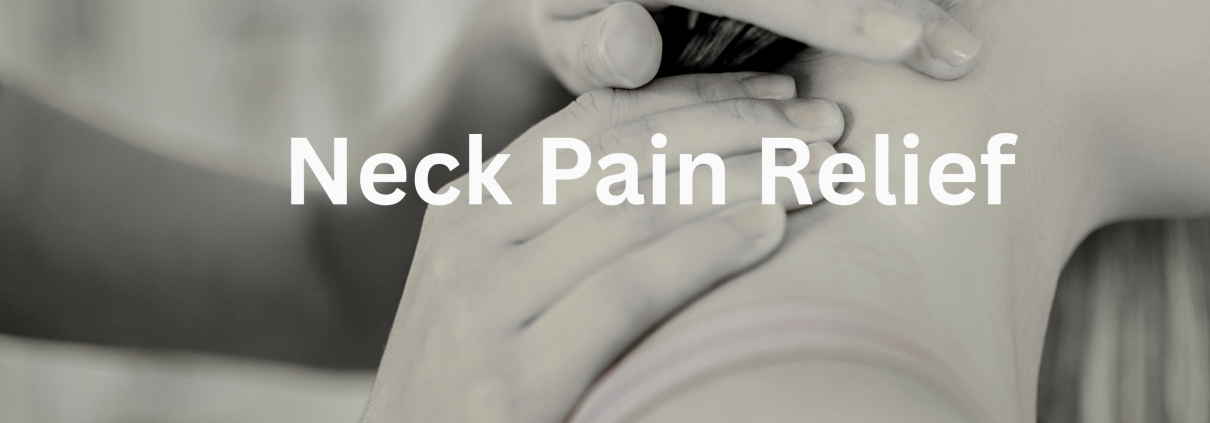Neck Pain Treatment in Neutral Bay
Neck pain, headaches or stiffness from desk work or sleep posture? Our Neutral Bay physios identify the cause, relieve pain, and restore comfortable movement with a plan that fits your day.
What Causes Neck Pain?
Neck pain can come from various sources, including:
- Poor Posture: Spending hours hunched over screens or devices.
- Muscle Strain: Sleeping in awkward positions or repetitive neck movements.
- Injuries: Whiplash from accidents or sports-related trauma.
- Degenerative Changes: Arthritis or disc wear and tear.
- Stress: Emotional tension often manifests as muscle tightness in the neck.
Understanding the cause of your neck pain is essential for effective treatment.
How Does Neck Pain Relate to Headaches and Migraines?
Tension and dysfunction in the neck muscles can contribute to headaches, including:
- Tension Headaches: Caused by tightness in neck and shoulder muscles.
- Cervicogenic Headaches: Originating from cervical spine issues.
- Migraines: Sometimes triggered or worsened by neck muscle tension.
Types of Neck Pain You Might Experience
- Acute Neck Pain: Sudden pain from injury or strain, usually lasting days to weeks.
- Chronic Neck Pain: Persistent discomfort lasting more than three months.
- Radicular Pain: Pain radiating into the arms, indicating possible nerve involvement.
Diagnosing Neck Pain
At our clinic, a thorough assessment is key to understanding the root cause of neck pain:
- Detailed History: We discuss your symptoms, lifestyle, and relevant medical background.
- Physical Assessment: Includes range of motion, joint mobility, muscle strength, postural evaluation, and neurological screening.
- Referral for Imaging: If needed, we may refer you for X-rays or MRI scans.
What Does Physiotherapy Involve?
Physiotherapists use a range of hands-on and exercise-based techniques to address neck pain:
- Manual Therapy: Gentle joint mobilisation and muscle release.
- Postural Correction: Improving alignment to reduce strain.
- Exercise Prescription: Strengthening stabilising muscles and improving mobility.
- Education: Advice on ergonomics, movement, and stress management.
This comprehensive approach targets not just symptoms, but the underlying causes of pain.
Rated 5 Stars by Neutral Bay locals
“After many difficult months of pain, and being passed around by various different doctors, physios, and chiropractors I was recommended L&C Quality Healthcare by a friend who spoke highly of the team and their extensive musculoskeletal expertise, knowledge and commitment to patients. Needless to say, my range of motion has improved remarkably, and I can carry on with my daily activities and work pain free!.”
– Kos B.
“Lovely people excellent service, very elaborate in explaining the need to know the progress of treatment that help me understand what step is going to be taken
Highly recommended”
– Anny R
“After experiencing a neck injury I was in so much pain, but Jayden at L&C Physio suggested all the right things for me to recover. Exercises he recommended really helped and his caring supportive nature made it easier to see positive progress in small increments because recovery takes time. Highly recommend!”
– Angela M
Our Approach
We tailor your care journey across three key phases:
- Pain Relief & Symptom Management
- Addressing Root Causes
- Long-Term Maintenance & Prevention
Your treatment plan is collaborative – we’ll meet you where you’re at and adapt our approach to suit your goals and lifestyle.
Simple Neck Pain Relief Tips You Can Try at Home
While seeing a physiotherapist is important, you can also try:
1. Chin Tucks at the Wall
Stand with your back against the wall and gently pull your chin straight back to create a “double chin.” This helps improve posture and relieve tension.
2. Neck Stretches
Do gentle stretches like:
- Side bends (ear to shoulder)
- Neck rotations (look left/right)
- Looking down (chin to chest)
Hold each for 20–30 seconds. Repeat twice a day.
3. Use Heat or Ice
- Heat relaxes tight muscles (e.g. warm pack or hot shower).
- Ice reduces inflammation (e.g. after a flare-up).
Use for 10–15 minutes at a time.
4. Adjust Your Workstation
Keep your screen at eye level. Sit with your shoulders relaxed and your feet flat on the ground. Use a small rolled towel behind your lower back for support.
5. Take Regular Breaks
If you sit for long periods, stand up and move every 30–60 minutes. Roll your shoulders and stretch your neck gently.
6. Self-Massage
Use your fingers or a massage ball to apply gentle pressure to tight spots (especially upper traps and shoulders).
7. Breathe and Relax
Stress can cause you to hold tension in your neck. Try slow breathing or brief meditation to help relax your muscles.
When Should You See a Physiotherapist?
- If neck pain is limiting your movement, causing headaches, or persisting for weeks, it’s a good idea to consult a physiotherapist. They can assess your condition thoroughly and tailor treatment to your needs.
FAQs
- Will I need imaging?
Only if red flags or non-progression; most neck pain responds to physio. - How many sessions?
Most patients improve within 2–6 visits, depending on severity.
We’re Here to Help
Whether you’re dealing with a new injury or long-term neck tension, our team is ready to help you find clarity, comfort, and confidence through movement. Book your Initial Physiotherapy Consultation – and let’s start working toward long-term relief.


